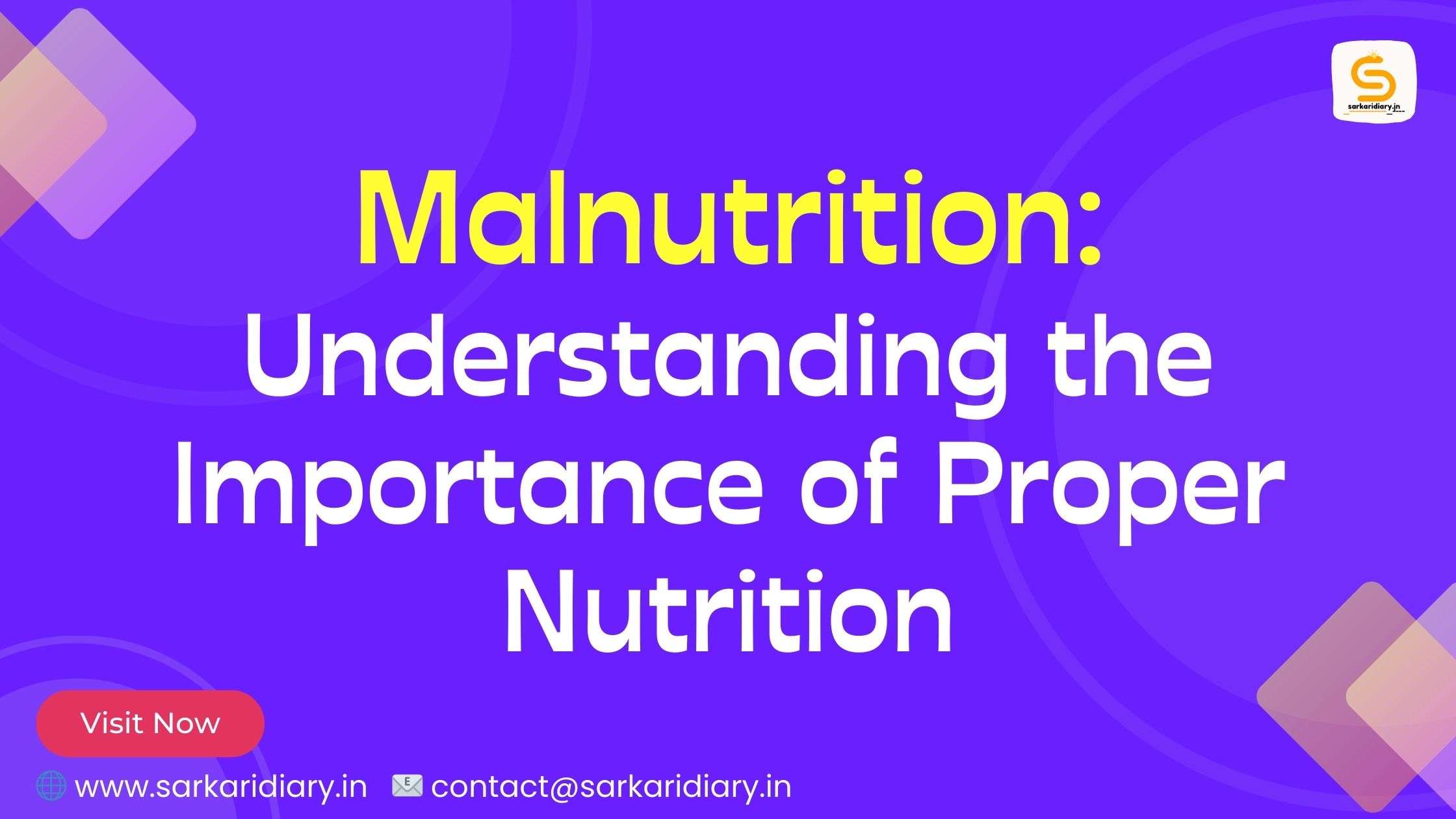In today’s fast-paced world, it’s easy to neglect our health and well-being. Everyone knows that maintaining a balanced diet is crucial, but what happens when we don’t get the nutrients our bodies need? That’s where malnutrition comes into play, and it’s a serious issue that affects millions of people around the world. In this post, we’ll explore the causes, effects, and prevention of malnutrition, shedding light on why proper nutrition is so vital for our overall health.
What is Malnutrition?
Malnutrition occurs when our bodies don’t receive the essential nutrients, vitamins, and minerals they need to function properly. It can be caused by various factors, such as a lack of access to nutritious food, an imbalanced diet, or underlying medical conditions that affect nutrient absorption. Malnutrition can affect anyone, regardless of age or socioeconomic status, although certain populations, such as children and older adults, are more susceptible.
The Impact of Malnutrition
Malnutrition has far-reaching effects on our physical and mental well-being. In children, it can lead to stunted growth, cognitive impairments, and weakened immune systems, making them more susceptible to infections and diseases. For adults, malnutrition can result in muscle wasting, decreased energy levels, and impaired cognitive function. Over time, chronic malnutrition can lead to organ failure and even death.
Visit Sarkari Diary Notes Section
Also Read:
- हिन्दी भाषा शिक्षण रणनीतियाँ एवं एक अध्यापक के रूप में रणनीतियों का प्रयोग
- स्वास्थ्य शिक्षा तथा इसके महत्त्व
- स्वास्थ्य को प्रभावित करने वाले कारक factors affecting health by Sarkari diary
- स्वास्थ्य का क्या तात्पर्य
- स्वास्थ शिक्षा पे विद्यालय प्रशासक की भूमिका
Types of Malnutrition
Malnutrition can manifest in different forms. The most common types are:
1. Undernutrition
Undernutrition refers to a state of insufficient energy and nutrient intake. It’s often characterized by being underweight and having a low body mass index (BMI). Undernutrition can result from poverty, food insecurity, and limited access to nutritious food.
2. Overnutrition
Contrary to popular belief, malnutrition isn’t solely about not getting enough food. Overnutrition refers to consuming an imbalanced diet that is high in unhealthy fats, sugars, and processed foods while lacking essential nutrients. This can lead to obesity, diabetes, cardiovascular diseases, and other chronic health conditions.
3. Micronutrient Deficiencies
Micronutrient deficiencies occur when our bodies lack specific vitamins and minerals. Common deficiencies include iron, vitamin A, zinc, and iodine. These deficiencies can lead to impaired growth, weakened immune systems, and increased susceptibility to infections.
Preventing Malnutrition
The good news is that malnutrition is preventable. Here are some tips to ensure you’re getting the right nutrition:
1. Eat a Balanced Diet
Focus on consuming a variety of foods from different food groups. Include fruits, vegetables, whole grains, lean proteins, and healthy fats in your meals. This will help you obtain a wide range of essential nutrients and maintain a healthy weight.
2. Portion Control
Pay attention to portion sizes to avoid overeating. Use smaller plates and listen to your body’s hunger cues. Eating slowly and mindfully can prevent excessive calorie intake.
Visit Sarkari Diary Notes Section
Also Read:
- हिन्दी भाषा शिक्षण रणनीतियाँ एवं एक अध्यापक के रूप में रणनीतियों का प्रयोग
- स्वास्थ्य शिक्षा तथा इसके महत्त्व
- स्वास्थ्य को प्रभावित करने वाले कारक factors affecting health by Sarkari diary
- स्वास्थ्य का क्या तात्पर्य
- स्वास्थ शिक्षा पे विद्यालय प्रशासक की भूमिका
3. Nutritional Supplements
In some cases, nutritional supplements may be necessary, especially for individuals with underlying health conditions or limited access to a diverse range of foods. Consult with a healthcare professional to determine if supplements are right for you.
4. Seek Nutritional Guidance
If you’re unsure about your dietary needs or how to achieve a balanced diet, consult with a registered dietitian or nutritionist who can provide personalized guidance and meal planning strategies.
5. Promote Food Security
Advocate for policies and initiatives that improve access to nutritious and affordable food for all. Support local food banks, community gardens, and organizations working to eradicate food deserts.
Conclusion
Proper nutrition plays a vital role in our overall health and well-being. Malnutrition is a serious issue that can have severe consequences for individuals and communities. By being mindful of our dietary choices, educating ourselves, and supporting efforts to improve food security, we can work towards a healthier and nourished future. Remember, your health is your wealth, and taking care of your nutrition is a crucial step towards a better quality of life.



